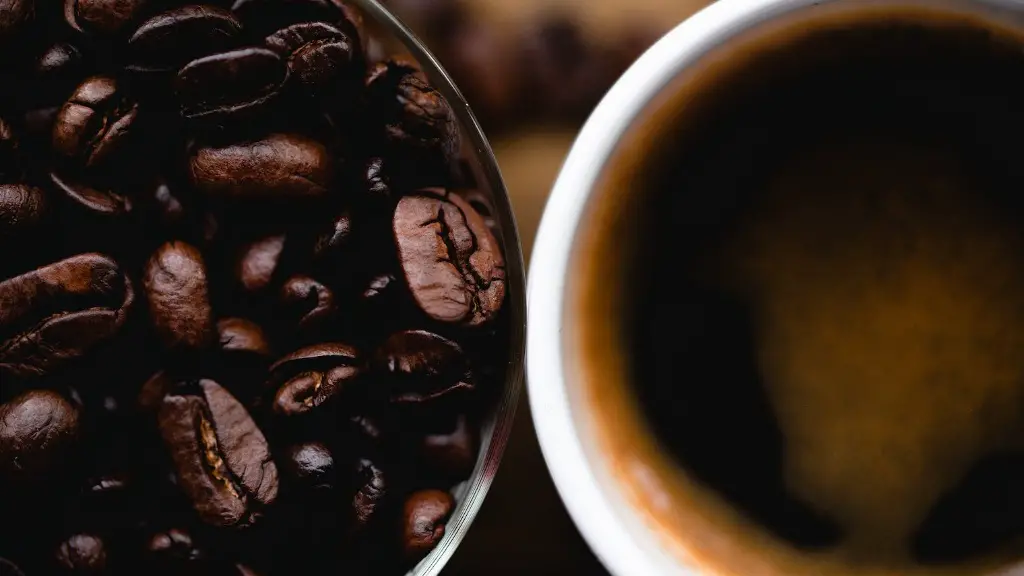Coffee seems to have become an indispensable part of life for many people. But why is it so popular? I believe it’s because of the stimulating effects it has on the human body that make us feel better and more energised. Those effects come with a price, however, as too much coffee can leave us feeling anxious and exhausted.
Achieving that right balance of coffee is necessary for feeling an energised benefit, but it’s not easy. Often, those who drink coffee believe that it will energise them and boost their alertness, but end up crashing after a few hours. This is because coffee’s stimulating effect wears off quickly, leaving us more tired than if we had abstained from coffee altogether.
According to research, your caffeine tolerance level plays an important role in how coffee affects you. Caffeine tolerance is largely determined by how much coffee and caffeine you regularly consume, as those who drink a lot of coffee can become immune to the stimulant effects. For this, it would be best for you to assess your caffeine tolerance level, so you won’t end up dependent on coffee’s stimulation.
It’s also important to note that caffeine is a diuretic, meaning it increases the amount of liquid that is expelled from the body, resulting in dehydration. Dehydration has numerous negative effects on one’s energy levels such as causing greater fatigue or drowsiness.
Additionally, coffee tends to aggravate the body’s natural sleep-wake cycle. Caffeine is considered to be one of the most widely used central nervous system stimulants, and it certainly has its benefits. However, those benefits can be taken away once it affects your sleep cycle, leaving you feeling fatigued during the day.
Given all this, it’s best to approach coffee with caution and moderation, as it can disrupt your sleep schedule and increase your tolerance to the effects of caffeine. Always make sure to stay hydrated throughout the day and to be mindful of how much coffee you drink, in order to truly reap the energising benefits of coffee without getting caused excessive fatigue.
Alternative Options
For those looking for a more energising, but less intense, alternative to coffee, green tea is an excellent option. Green tea is known to have a stimulating effect on the body, as well as containing caffeine, although the amount caffeine found in green tea is much lower than in coffee. Other plant compounds found in green tea, as well as a range of vitamins and minerals, contribute to a feeling of wakefulness and clarity, plus the fact that it’s calorie-free and fat-free.
Another great alternative to coffee is guarana, a plant native to the Amazon rainforest. It has a caffeine content of around three to four times higher than that found in coffee beans. It is also believed to have a range of beneficial effects, such as improving cognitive function and reducing fatigue, due to its antioxidant capabilities.
Some herbal teas also contain caffeine, and provide an excellent alternative to coffee. Some of the most well-known herbal teas with caffeine are yerba mate tea, guayusa tea and matcha tea, each of which is believed to have different properties and benefits.
Foods As An Alternative
It is not just drinks that can provide an energising effect on the human body. Eating certain foods can also aid in providing us with the energy we need. Foods that are rich in complex carbohydrates and fibre, such as grains, fruits and vegetables, can be helpful in giving us sustained energy throughout the day, as they take longer to be broken down by the body than other types of food.
Protein-rich foods are also useful in providing energy, as they provide our bodies with the energy it needs without causing spikes in our blood sugar levels. Low-fat dairy products, like yoghurt and cheese, as well as lean meat and fish, are all excellent sources of protein that can help to sustain our energy levels throughout the day.
Nuts and seeds are another excellent option when it comes to providing energy, as they contain a healthy mix of carbohydrates, protein and fat. Eating a handful of nuts or seeds is a great way to get a quick energy boost between meals.
Other Tips
Providing your body with enough fluids throughout the day is also an important factor in remaining energised. Having enough water in the body helps to make sure that our organs and tissues are functioning correctly, and can help to reduce our fatigue levels.
Ensuring a regular exercise routine helps to provide our bodies with a much needed energy boost, as well as improving our overall health. Exercise helps to increase the circulation of oxygen in the body, which helps to supply our cells with more energy and make us feel more alert and awake.
Finally, it’s important to get enough sleep. Not getting the recommended 7 to 8 hours of sleep each night can have a drastic impact on our energy levels, as it can lead to feelings of tiredness, fatigue and drowsiness due to the disruption of our natural body clock.
Stress Management
Managing our stress levels can also have an effect on our energy levels, as stress can cause physical and mental fatigue. Taking regular breaks throughout the day, engaging in relaxation activities like meditation or yoga, and taking time out to focus on self-care, can all help to reduce our stress levels, leaving us feeling more energised and refreshed.
Additionally, eating a balanced and healthy diet can help to keep our energy levels up, as it can provide us with the essential vitamins and minerals we need to remain energised. Eating a diet that’s based around a mix of fruits, vegetables, grains, proteins and healthy fats is a great way to ensure that our bodies get the nutrients they need to remain energised.
It’s also important that we strive for work-life balance. Overworking ourselves can lead to feelings of exhaustion, as too much work can leave us feeling mentally and physically drained. Taking the time to relax in between tasks can help to reduce our stress levels and give us renewed energy and focus.
Limiting Caffeine Intake
Limiting our caffeine intake can also be beneficial for enhancing our energy levels. Having too much caffeine can lead to feelings of restlessness and anxiety, which can leave us feeling even more fatigued. Additionally, drinking coffee late in the day can disrupt our sleep patterns, making it even more difficult to remain energised.
Caffeine has a stimulant effect on the body, but it’s important to be aware of the effects it can have, and to make sure that we’re not overconsuming it. Moderation is key, as having the right amount of caffeine can give us the boost of energy we need without the crashing feeling afterwards.
Healthy Habits
Creating healthy habits is a great way to boost our energy levels throughout the day. Eating three nutritious meals a day, getting regular physical activity, and setting aside time for relaxation, can give us the energising boost we need.
Having a regular sleep schedule can also help in boosting our energy levels, as making sure that we get enough sleep during the night can help our bodies to remain energised and alert during the day. Allowing ourselves at least 7 to 8 hours of sleep each night can help us to wake feeling refreshed and energised.
Finally, practising mindfulness can really help to energise us throughout the day, as taking the time to be mindful of our breathing and our thoughts can help to focus our minds, reduce our stress levels, and aid in providing us with the energy we need.
These are just some of the ways to help boost your energy levels when avoiding coffee, allowing you to remain energised throughout the day.

